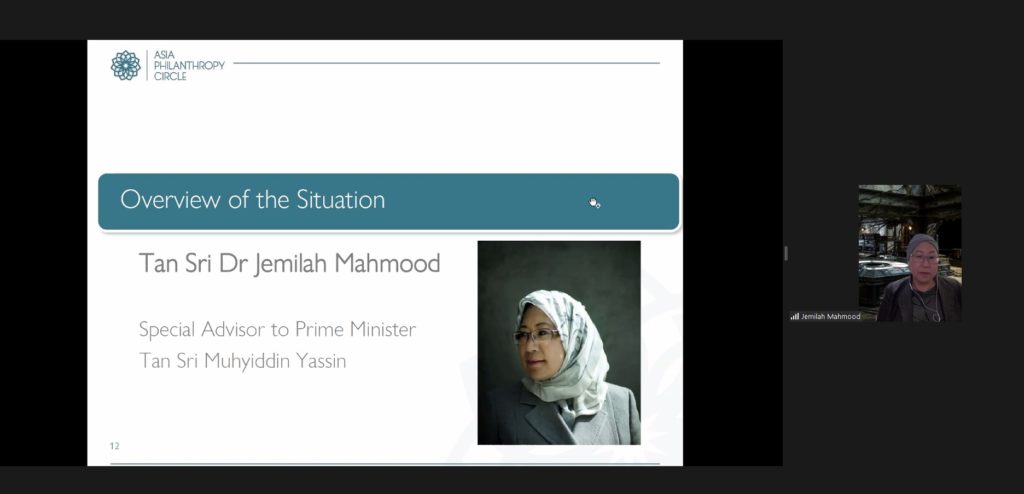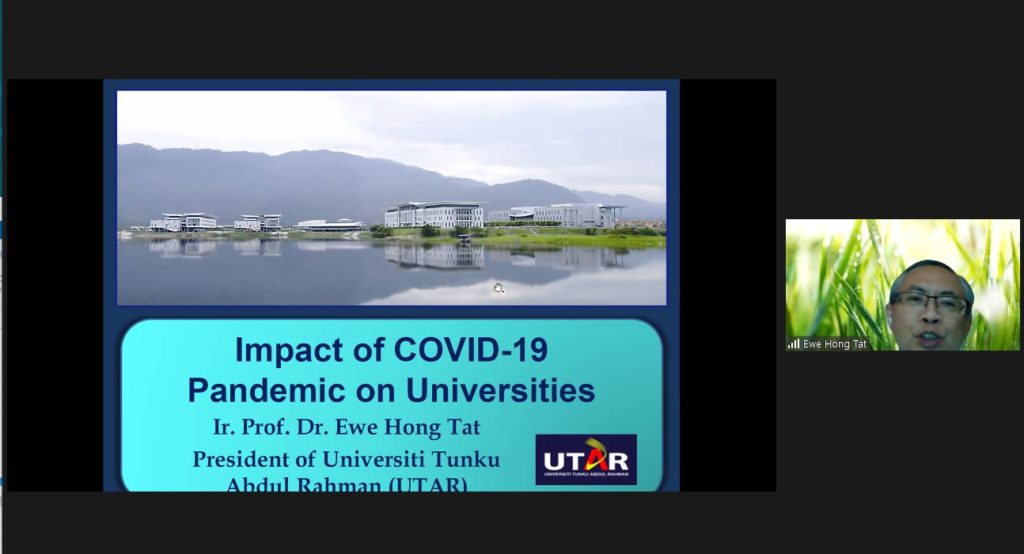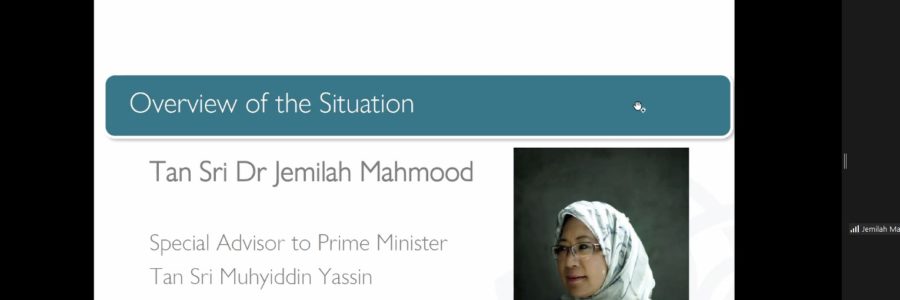by Joy Poon
Philanthropists are key actors in helping vulnerable groups who fall through the gaps in Malaysia’s COVID-19 relief initiatives. At APC’s online dialogue focusing on COVID-19 responses in Malaysia, a big takeaway was that though the pandemic exposed gaps in the welfare of vulnerable groups in Malaysia, it accelerated opportunities to address these gaps. Now more than ever, philanthropy has potential for significant collective impact. This perspective was reflected by speaker Tan Sri Dr Jemilah, “one should never waste a good pandemic”. It is during this period that collaborative philanthropy can bring about bigger impact to the communities.
Tan Sri Dr Jemilah Mahmood, special advisor to the Malaysian Prime Minister, lauded Yayasan Hasanah’s informal government-linked response group which leverages on private sector supply chains to procure supplies for the needy. Another initiative based on collaboration was KitaMATCH, a digital coordination platform for civil society, the government and philanthropists to share data. Overall, collaboration increases trust and understanding that would be key for effective grassroots action.

COVID-19 has also raised awareness about the needs of the vulnerable communities. Dr Teh Su-Thye of Global Peace Foundation Malaysia spoke of one such group, the Orang Asli’s (OA) lack of access to healthcare, sanitation and food security. COVID-19 has brought an avenue to foster greater collective action to help the OAs develop resilient communities and sustainable livelihoods in the long term. The Movement Control Order (MCO) forced organisations to communicate better with one another in order to better help the OAs, said Dr Teh.

The dialogue also featured an area not often explored in APC’s dialogues – higher education. Dr Ewe Hong Tat, president and CEO of Universiti Tunku Abdul Rahman, shared about how COVID-19 has brought challenges like replicating the campus experience online and deepening the financial concerns of students. However, a cyber classroom has allowed students to interact with peers from across the world, increasing cross-campus collaboration and internationalisation. Organisations such as YTL Foundation have also stepped in to broaden internet and remote learning access. The MCO has also spurred initiatives to narrow the digital divide in education across Malaysia. Cheryl-Ann Fernando from Pemimpin Global School Leaders (GSL) Malaysia shared that GSL has been working with non-profits and government representatives to facilitate the use of technology in education.
As the dialogue wrapped up, speakers concluded that the focus ahead for philanthropists is to enhance collaboration among the various stakeholders. Sharing data and resources and strengthening communication are much-needed solutions to accelerate efforts to help vulnerable communities. The takeaways for the social sector are important – be it in education or putting the spotlight on vulnerable communities, COVID-19 has pushed groups to rethink how to create impact effectively.

